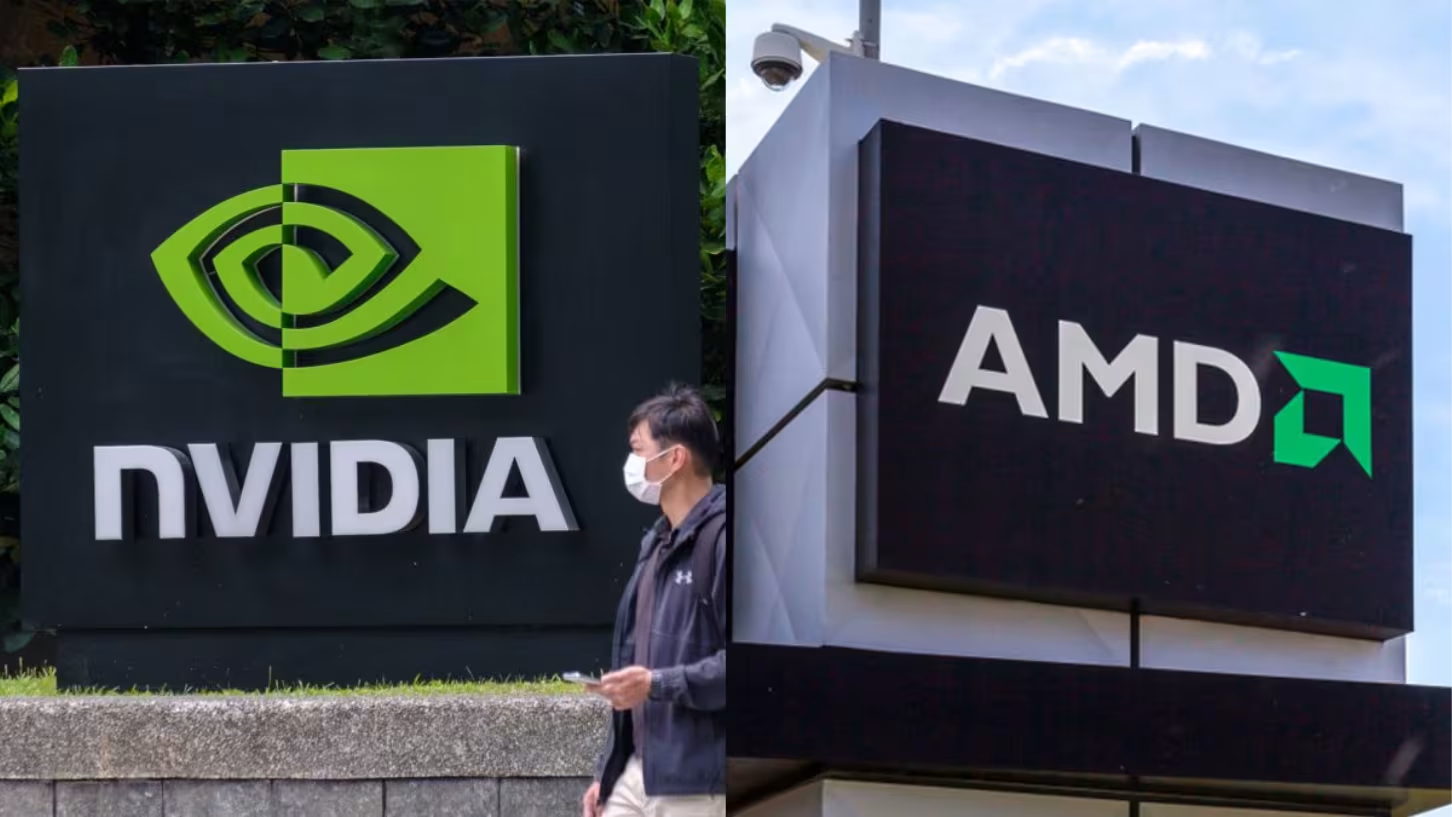Nvidia and AMD 15% China chip sales deal has just sent shockwaves through the global tech industry. In an unprecedented agreement, the two semiconductor giants will share 15% of their revenue from AI chip sales in China with the U.S. government. This deal, recently reported by multiple outlets, including Reuters and the Financial Times, is tied directly to securing export licenses for their AI chips in the Chinese market.
Nvidia and AMD 15% China chip sales deal – The Policy Breakdown
Nvidia and AMD have agreed to pay 15% of revenue from specific AI chips—Nvidia’s H20 and AMD’s MI308—to the U.S. government as a condition for obtaining export licenses. These chips had been restricted earlier this year under export control measures. The deal allows shipments to resume at a notable financial cost to the companies.
Legal & Political Implications
Critics argue that this arrangement may violate constitutional principles, specifically the prohibition on export taxes. This move also raises ethical questions: Is it a legitimate national security measure, or a financial maneuver that opens the door to concerns of coercion or “bribery” in trade policy? Export control experts caution that conflating security with revenue generation might undermine trust in U.S. export regulations.
Economic & Market Impact
China remains a pivotal market for both firms, accounting for approximately $17 billion in Nvidia’s revenue and $6.2 billion for AMD. Analysts warn that ceding 15% of chip revenue could dent profitability, though stock markets responded positively, with Nvidia reaching all-time highs and AMD near a 52-week peak.
Backdrop of Export Controls and Trade Tensions
Earlier in 2025, the U.S. halted shipments of the H20 chip to China, citing security risks. Due to these restrictions, Nvidia anticipated a Q1 charge of up to $5.5 billion, while AMD projected about $1.5 billion in revenue losses under similar constraints.
Strategic Gains Amid Geopolitical Friction
The settlement can also adopt a broader approach with the aid of the Trump administration to maintain leverage in the AI chip race while extracting financial concessions. Allowing exports with a revenue cut guarantees continued U.S. Influence in the zone and preserves a revenue move tied to the AI hardware call for.
Wider Implications for the Semiconductor Ecosystem
This deal may set a precedent for conditional export licensing tied to financial arrangements. It could complicate negotiations with allies and alter how semiconductor companies approach global market access. Security experts warn it may weaken the credibility of export controls by prioritizing economic considerations over national defense.
Conclusion: Balancing Commerce and Control
The Nvidia and AMD 15% China chip sales deal underscores the complex interplay between global commerce and national security. While it reopens the Chinese market for two major chipmakers, it does so at a cost, both fiscal and reputational. Moving forward, companies and policymakers must carefully weigh the price of access in high-stakes tech diplomacy.



